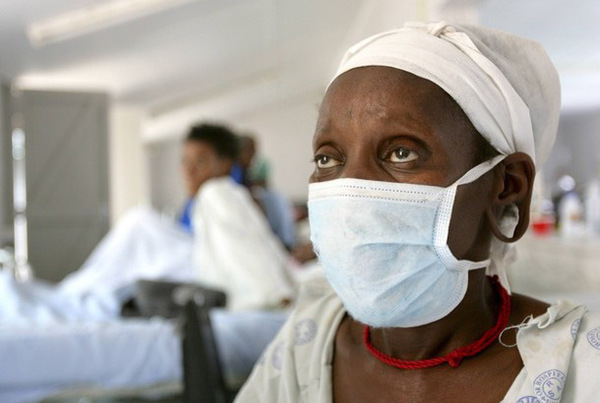On Friday March 24, 2017, Nigeria joined other countries to celebrate the 2017 World Tuberculosis Day (WTD) with the theme, Unite to end TB in Nigeria: Accelerating TB Case Detection and Treatment. As part of efforts to stop the disease, experts have alerted to the growing cases of Multi-Drug Resistant TB (MDR TB), the burgeoning epidemic of the disease in Nigeria, which rides on the co-existing pandemic of Human Immuno-deficiency Virus (HIV), and that diagnosing MDR and extensively drug-resistant TB as well as HIV-associated TB can be complex and expensive. They, however, proffered solutions.
Grace Obiageli has been having persistent cough with sputum and blood at times. 27-year-old Grace also has chest pains and general body weakness. She has lost some weight, always feeling feverish and sweats profusely at night.
Grace was diagnosed of tuberculosis (TB) at a nearby hospital with sputum smear microscopy. Trained laboratory technicians look at sputum samples under a microscope to see if TB bacteria are present.
But according to the World Health Organisation (WHO), microscopy detects only half the number of TB cases and cannot detect drug-resistance. Grace was placed on treatment. But six months on, she is still coughing persistently with sputum.
Tuberculosis is caused by bacteria (Mycobacterium tuberculosis) that most often affect the lungs. TB is spread from person to person through the air. When people with lung TB cough, sneeze or spit, they propel the TB germs into the air. A person needs to inhale only a few of these germs to become infected.
According to the WHO, about one-third of the world’s population has latent TB, which means people have been infected by TB bacteria but are not (yet) ill with the disease and cannot transmit the disease.
Grace was referred to the National TB Centre at the Nigerian Institute of Medical Research (NIMR) Yaba. Using the rapid test Xpert MTB/RIF, she was diagnosed TB and resistance to rifampicin, the most important TB medicine within two hours. The test is now recommended by WHO as the initial diagnostic test in all persons with signs and symptoms of TB. More than 100 countries are already using the test and 6.2 million cartridges were procured globally in 2015.
According to WHO, diagnosing multi-drug resistant and extensively drug-resistant TB as well as HIV-associated TB can be complex and expensive. In 2016, four new diagnostic tests were recommended by WHO – a rapid molecular test to detect TB at peripheral health centers where Xpert MTB/RIF cannot be used, and three tests to detect resistance to first- and second-line TB medicines.
Grace was placed under the free TB treatment program of the Federal Government in collaboration with the Lagos State Government. After another six months, she is now fully cured of the disease.
Indeed, TB is a treatable and curable disease. Active, drug-susceptible TB disease is treated with a standard six-month course of four antimicrobial drugs that are provided with information, supervision, and support to the patient by a health worker or trained volunteer. Without such support, treatment adherence can be difficult and the disease can spread. The vast majority of TB cases can be cured when medicines are provided and taken properly.
Grace is one of the over 460,000 cases of tuberculosis recorded yearly in Nigeria, placing the country on the world list of countries with the highest TB burdens for over two decades.
Grace lives in Lagos State, which has a high population density, overcrowding in homes, public places and transportation, with a poor level of personal and environmental hygiene, and presents an ideal location for the spread of TB on the population.
This explains why Lagos has in the past had the highest TB burdens on Nigeria. According to recent reports, the high TB notifications from Lagos State was said to have been overtaken recently by that of Kano State, but that remains to be confirmed through prevalence surveys.
However, according to the WHO, Nigeria is currently fourth highest burden globally and highest among African countries. Also, TB is one of the top 10 causes of death worldwide.
In 2015, 10.4 million people fell ill with TB and 1.8 million died from the disease (including 0.4 million among people with HIV). Over 95 percent of TB deaths occurred in low- and middle-income countries.
– Chukwuma Muanya I The Guardian
Nigeria and five other countries account for 60 percent of the total, with India leading the count, followed by Indonesia, China, Nigeria, Pakistan and South Africa.

